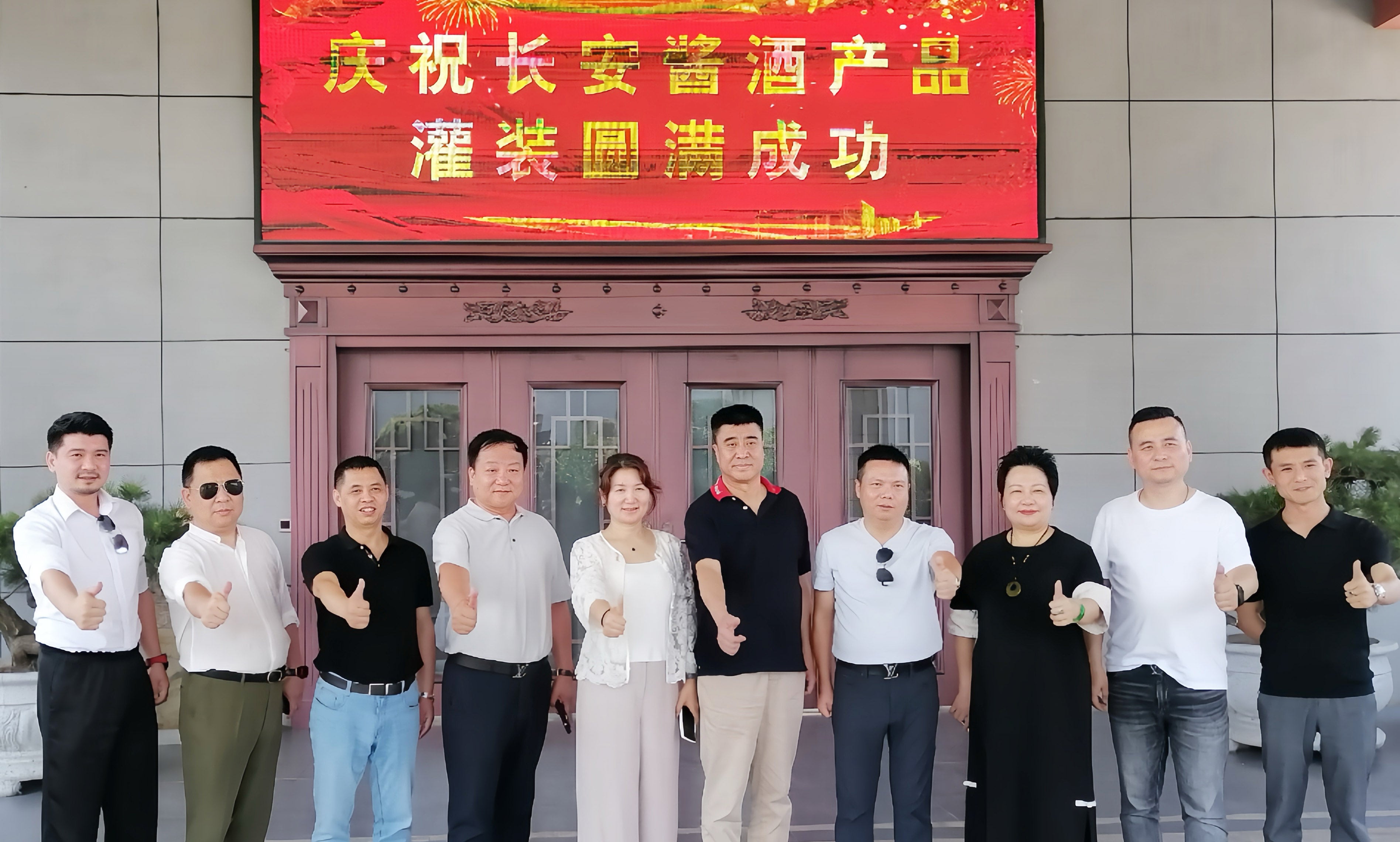
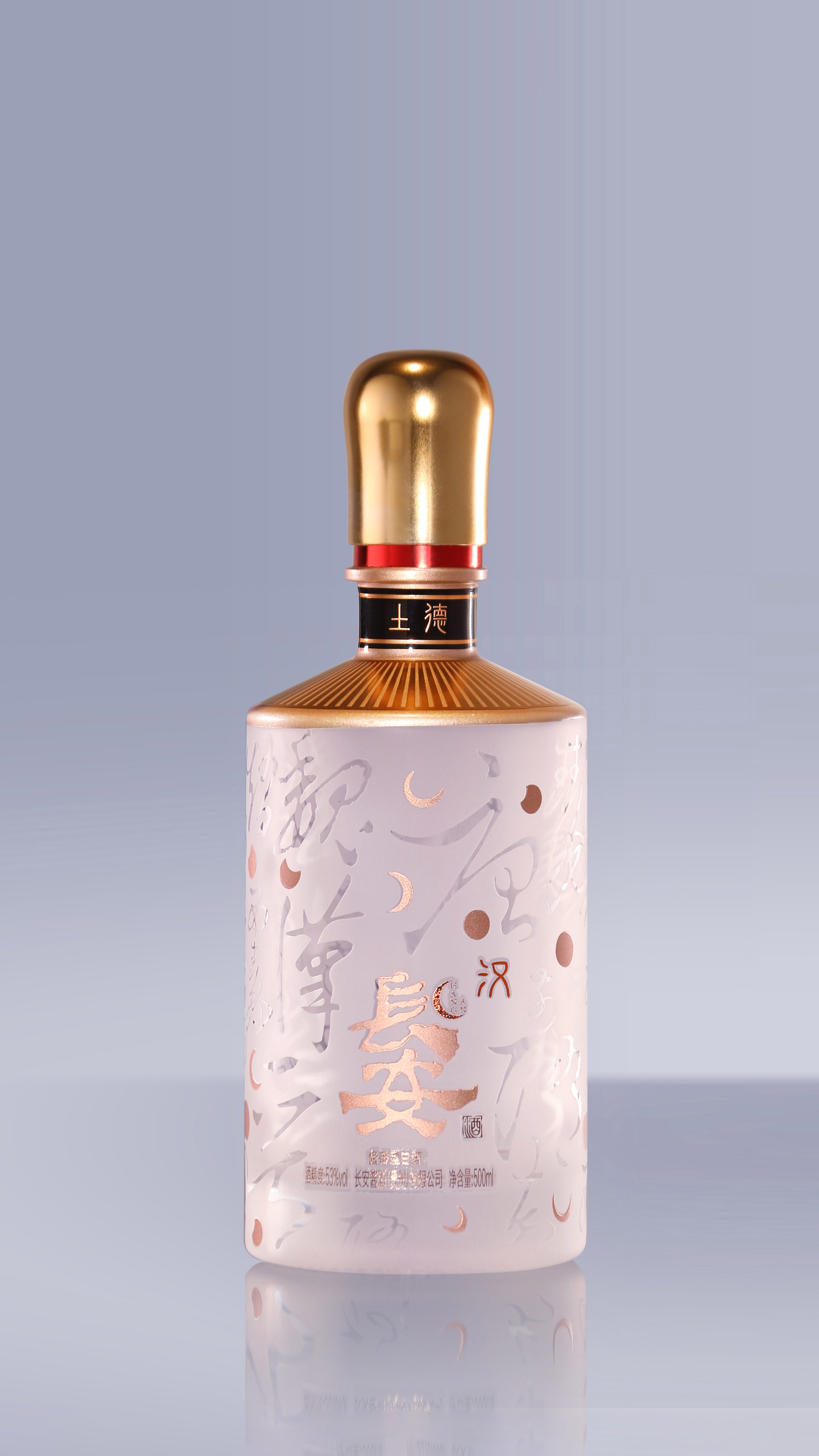
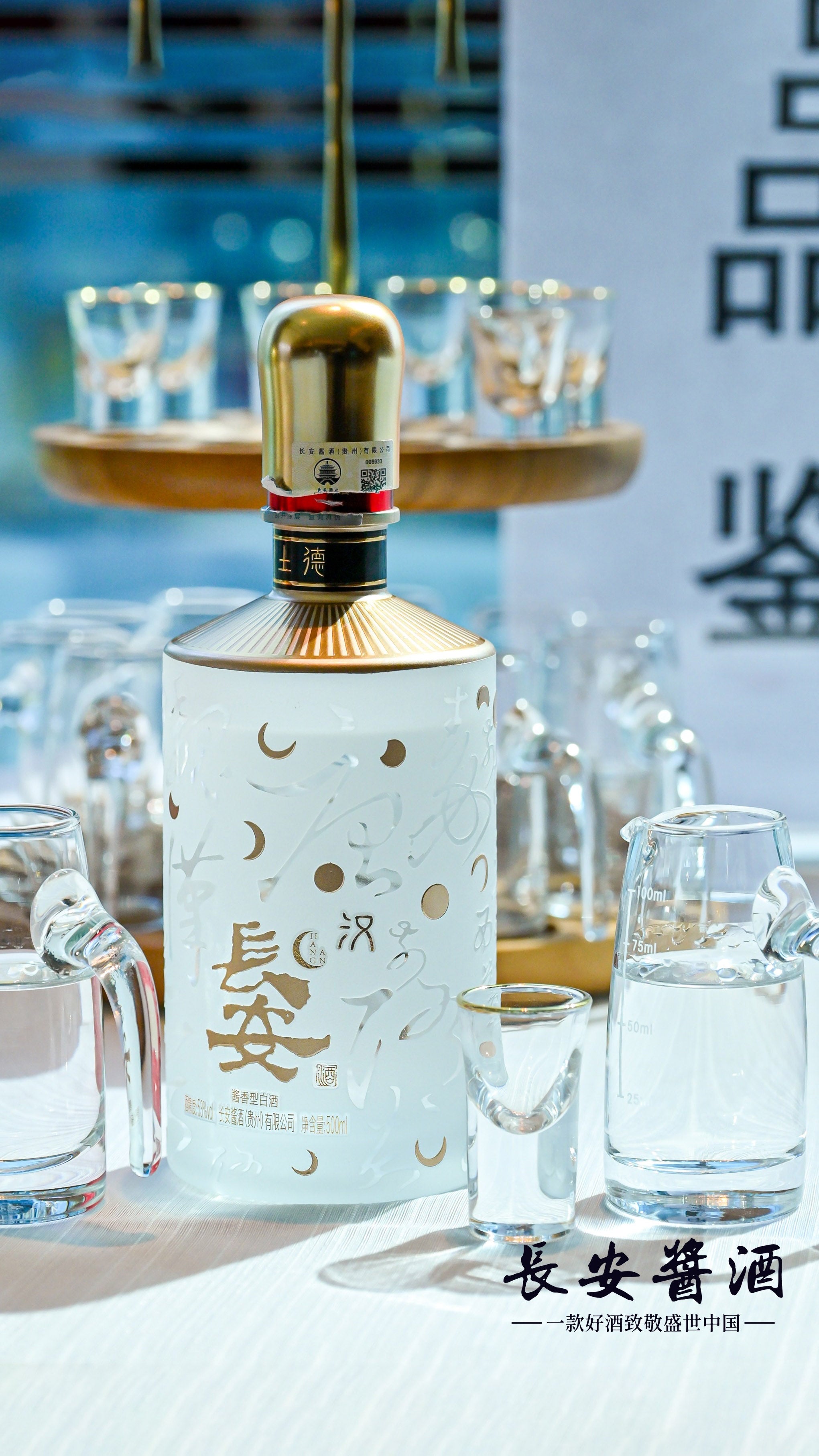
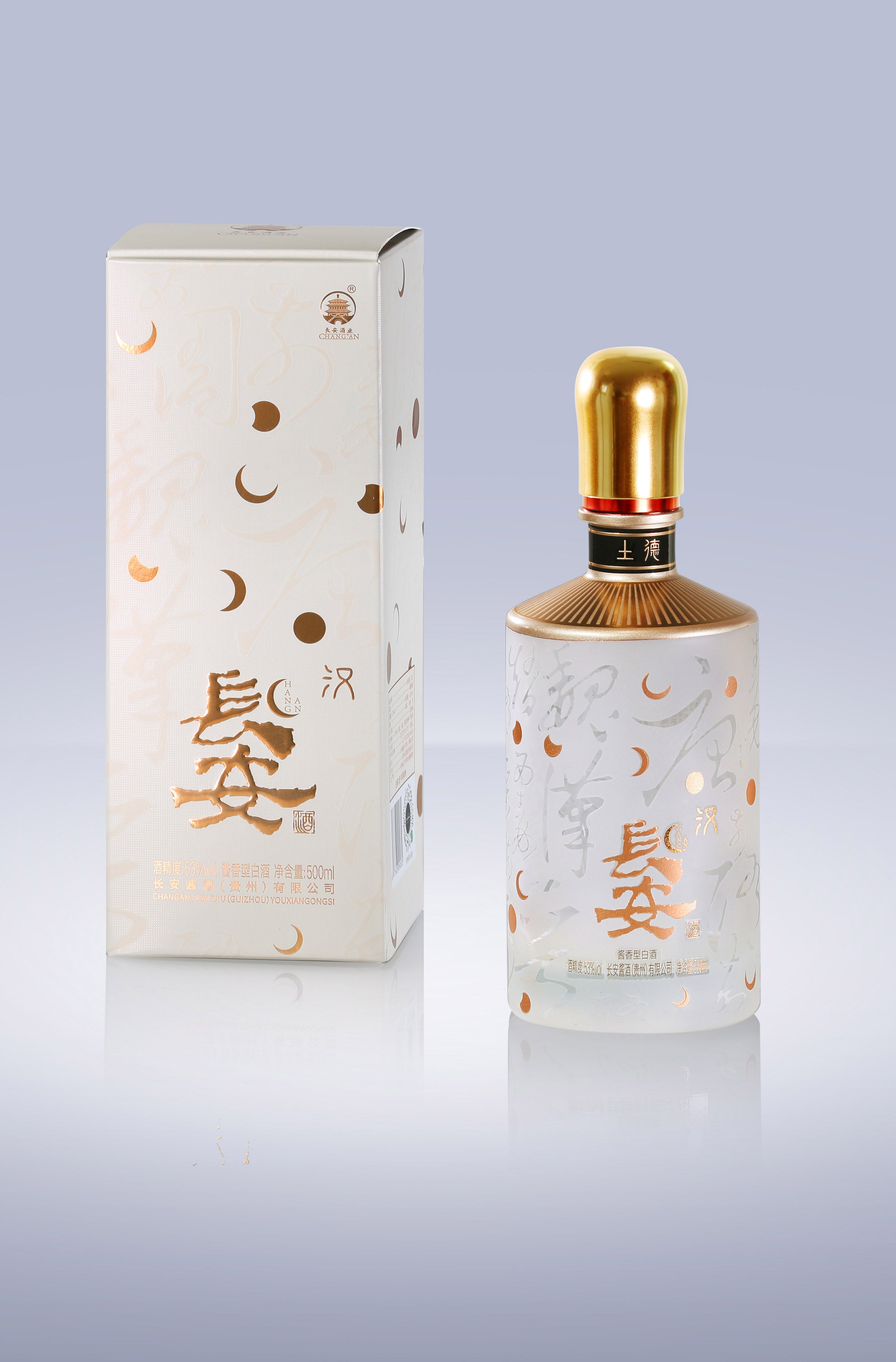
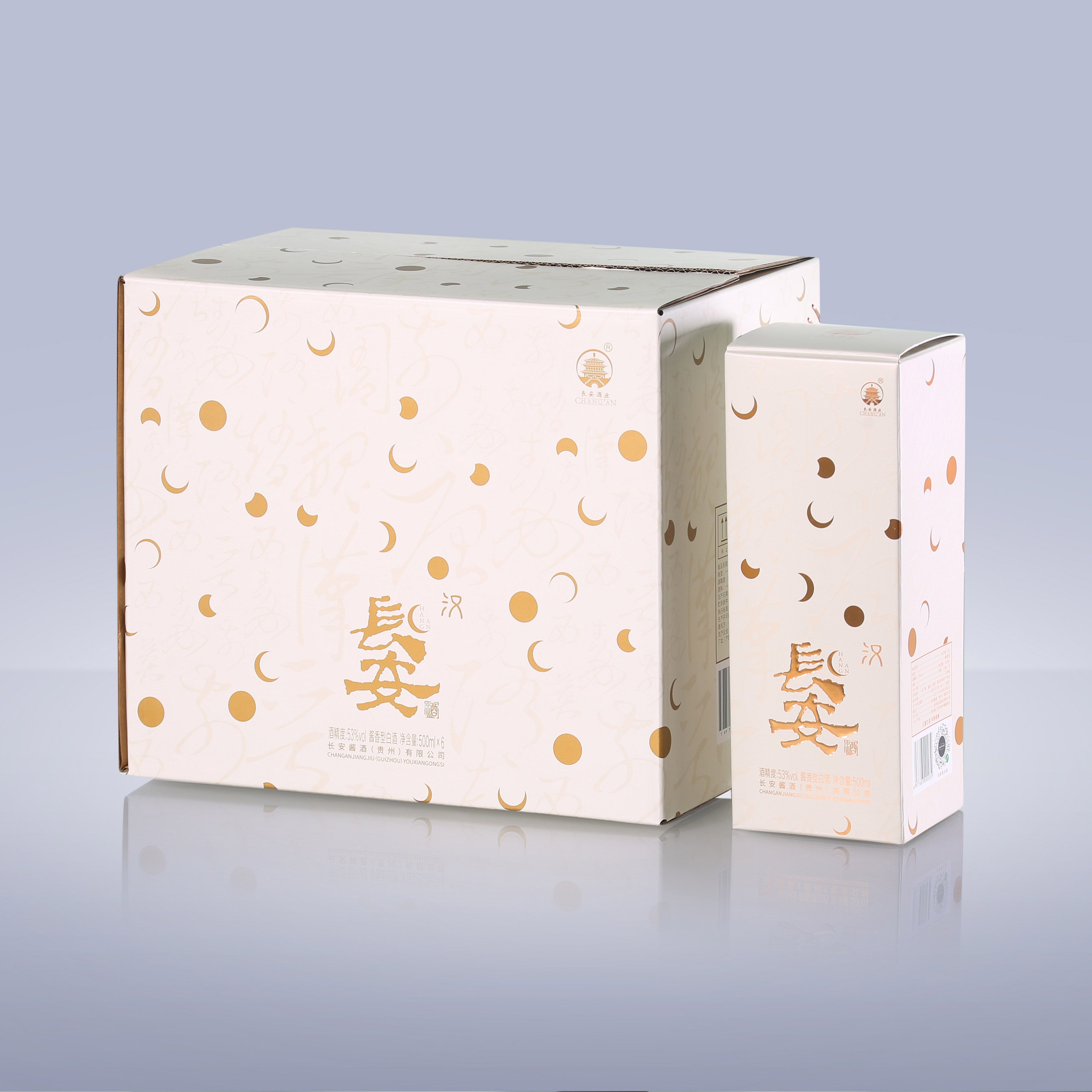
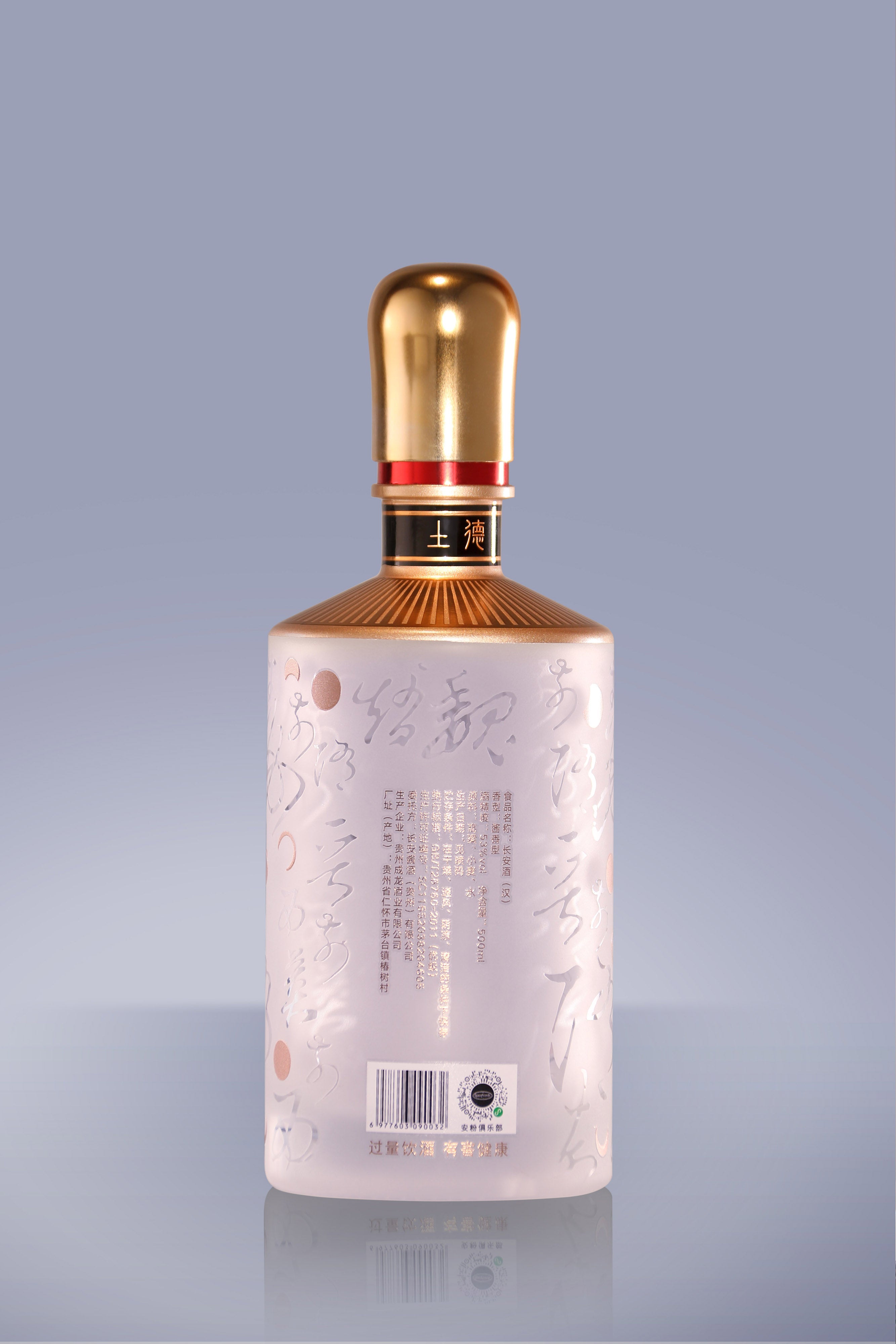
汉






Former Qin and Later Qin
Eastern Han Dynasty
Western Wei
Sui and Tang Dynasties
Western Han Dynasty
秦
Western Zhou Dynasty
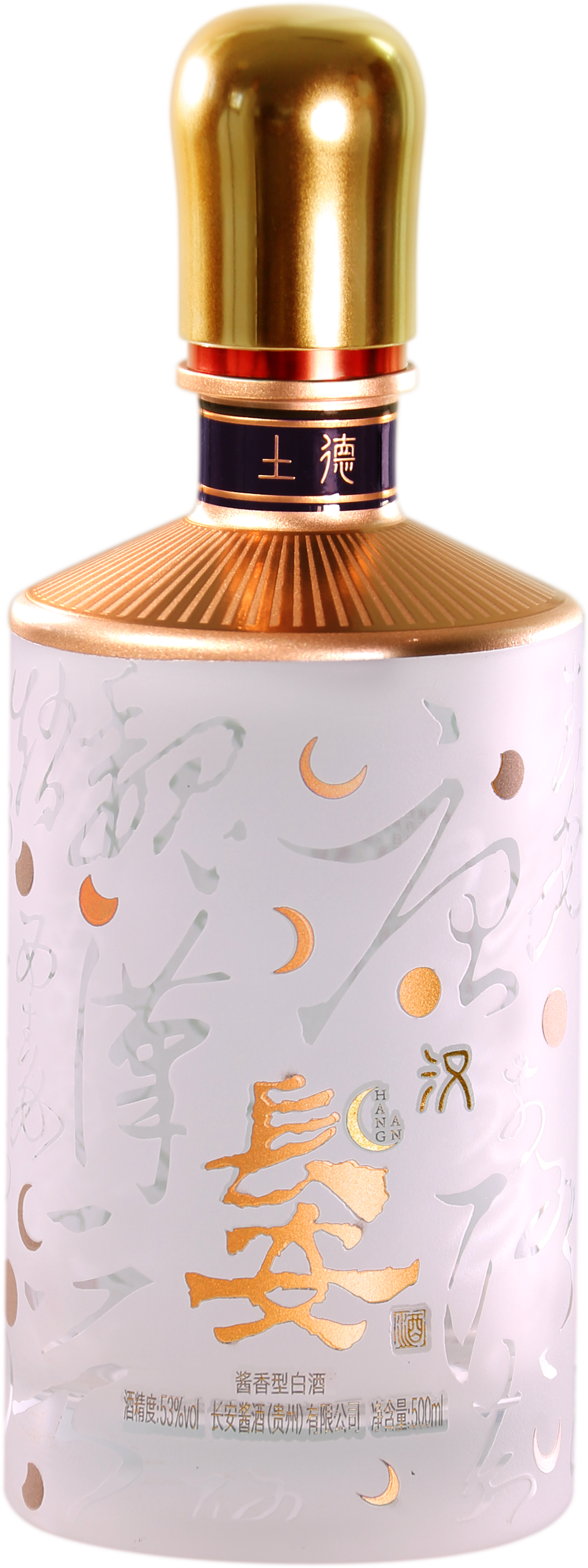
Maotai Town is blessed with unparalleled natural advantages. Located in a place of beautiful mountains and rivers, with a mild climate and clear waters of the Chishui River, it provides ideal conditions for winemaking. Maotai liquor, as the treasure of this place, has a long history of winemaking, which can be traced back to the prosperous Han and Tang dynasties. After thousands of years of refinement, the craftsmanship has become increasingly exquisite.
Chang'an Sauce-flavored Liquor is a masterpiece resulting from the powerful collaboration between Guoxi and Chenglong wineries in Maotai Town. It is made from carefully selected local red sorghum, strictly adhering to the traditional 12987 process, and drawing upon the essence of Maotai Town's natural environment.
Chang'an Sauce-flavored Liquor Han
Gentleman's Virtue Series / Chinese Style / Fashion / Taste / High-End Hospitality / Friends Can Bring the Tea / No Headache
Barcode: 6977603090032
Product Name: Chang'an Sauce-flavored Liquor (Han Dynasty)
Aroma: Soy sauce aroma; Alcohol content: 53% vol; Net content: 500ml
Raw materials: sorghum, wheat, water. Production date: see inkjet code. Storage conditions: store in a dry, ventilated, cool, and clean environment. Standard implemented: GB/T26760-2011 (Superior grade).
Production License Number: SC11552038204605
Manufacturer: Guizhou Chenglong Winery Co., Ltd. Address (Place of Origin): Chunshu, Maotai Town, Renhuai City, Guizhou Province
Suggested retail price: 1199 yuan

"Chang'an has been the capital of emperors since ancient times." The rich history and heritage of thirteen dynasties that established their capitals here have nurtured the regal aura of this precious land. It has also left behind awe-inspiring stories that transcend time and space, as well as the rich and lingering aroma of wine. The profound history and the long-standing wine culture complement each other and shine brightly.
In the Chinese liquor industry, and even globally, Chang'an Liquor is the only liquor brand named after one of the world's four ancient capitals. Such brand value is irreplaceable and is especially rare in today's era.
The Chang'an liquor brand was established in 1971 and has been around for half a century.
Brewing process and raw materials
Every bottle of Chang'an sauce-flavored liquor is hard-won:
Local red sorghum, wheat, Chishui River water, and rice husks from Zunyi
In accordance with the times and the will of Heaven:
Sauce-flavored liquor has a long brewing time, with the first fermentation occurring on the Double Ninth Festival and the first koji making on the Dragon Boat Festival. This results in high costs, low yield, but high-quality liquor. The brewing process was first established in 1987.
Traditional brewing process: Authentic Maotai Town Daqu (large-grain) sauce-flavored liquor brewing process, adhering to traditional sauce-flavored liquor brewing techniques, strictly following 30 steps and 165 processes in sauce-flavored liquor production, requiring at least 5 years to mature.
Ingredients: sorghum, wheat, water
Storage conditions: Store in a dry, well-ventilated, and cool place.

Quality and Culture
Top-quality liquor: Prominent soy sauce aroma and pronounced aged fragrance. Smooth and mellow on the palate, with a full-bodied, rounded, and rich aroma that lingers even in the empty glass. The liquor has a pale golden color and exudes a complex blend of floral, fruity, and aged aromas.
Ample reserves of base liquor and aged liquor: The founder's many years of experience in the sauce-flavored liquor industry and the rich variety of aged liquors contribute to the stability of Chang'an sauce-flavored liquor product quality.
Inheriting Craftsmanship and Quality: Genuine Daqu Kunsha Sauce-flavored Liquor from Maotai Town, Guizhou Province. Maotai Town boasts unique advantages, with the clear waters of the Chishui River providing excellent conditions for brewing. The Chang'an Sauce-flavored Liquor Production Plant is located in the core 7.5 square kilometer sauce-flavored liquor production area of Maotai Town, Renhuai City, Guizhou Province, just a hundred meters away from the Maotai liquor production area.
The concept of dynastic succession based on the Five Virtues is an important one in ancient Chinese historical and ethical perspectives. It originates from the "Theory of the Cycle of the Five Virtues" proposed by Zou Yan, a Yin-Yang scholar during the Warring States period. This theory considers the five elements—metal, wood, water, fire, and earth—as five virtues, and posits that each dynasty represents one virtue, alternating in a cyclical manner according to the mutual restraint or generation of the Five Elements. The following is a detailed explanation of the dynastic succession based on the Five Virtues:
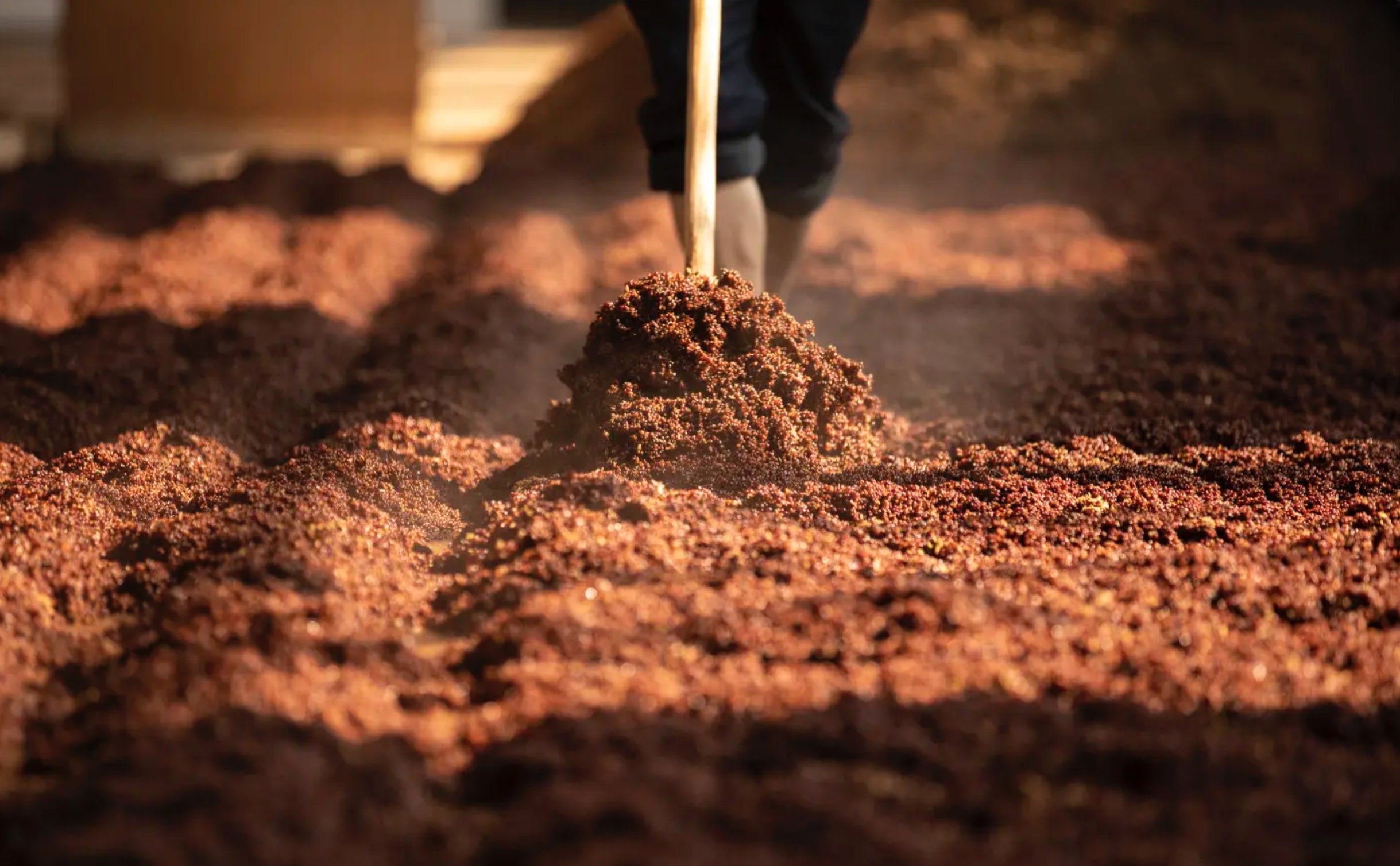
II. Examples of the Five Elements Alternation in Dynasties
1. Early Dynasties
- The Yellow Emperor: Earth Virtue. As one of the ancestors of the Chinese nation, he initiated the Earth Virtue Dynasty.
- Xia Dynasty: Wood Virtue. Yu was the last monarch to adopt the abdication system. The Xia Dynasty was known for its Wood Virtue, which embodied the concept of benevolent governance.
- The Shang Dynasty: Characterized by the element of metal . When Tang of Shang overthrew the Xia Dynasty, metal overcame wood. The Shang Dynasty was characterized by the element of metal, which was associated with warfare and a somber atmosphere.
- Zhou Dynasty: There is controversy about the virtue of the Zhou Dynasty, but the mainstream view is that the Zhou Dynasty was of the Fire element. Fire generates Earth, and the Zhou Dynasty inherited and carried forward the Earth element of the Yellow Emperor.
2. From the Qin and Han Dynasties to the Sui and Tang Dynasties
- Qin Dynasty: Water Virtue . After unifying the six kingdoms, Qin Shi Huang believed that the Zhou Dynasty was of the Fire Virtue and that the Qin Dynasty was of the Zhou Virtue. Therefore, he claimed to rule the world with the "Water Virtue" and implemented a series of systems related to the Water Virtue.
- The Han Dynasty initially identified itself as possessing the virtue of water , but later changed it to the virtue of earth. During the reign of Emperor Wu of Han, the Han Dynasty was officially recognized as possessing the virtue of earth, which was believed to overcome the virtue of water, symbolizing the legitimacy of the Han Dynasty's replacement of the Qin Dynasty.
- Sui Dynasty: Water Virtue. The Sui Dynasty built the Grand Canal, making outstanding contributions to water transport, and is therefore regarded as a Water Virtue Dynasty.
- Tang Dynasty: Earth Virtue. The Tang Dynasty inherited the Earth Virtue tradition of the Han Dynasty and created a prosperous era, reflecting the inclusive and generative characteristics of Earth Virtue.
3. Song, Yuan, Ming and Qing Dynasties
- The Song Dynasty: The Northern Song Dynasty belonged to the Wood element, and the Southern Song Dynasty inherited this element as well. The Song Dynasty was known for its benevolent governance, which aligns with the characteristics of the Wood element.
- Yuan Dynasty: Jinde . The Mongol Empire established the Yuan Dynasty and destroyed the Southern Song Dynasty, both belonging to the Jinde period. Although the Yuan Dynasty was not interested in the "Five Elements Cycle Theory," it was still regarded as the Jinde Dynasty by the common people.
- The Ming Dynasty was associated with the element of fire. Zhu Yuanzhang, the founder of the Ming Dynasty, overthrew the Yuan Dynasty, which was associated with the element of fire. The Ming Dynasty's self-identification with the element of fire reflected its pragmatic and timely political style.
- The Qing Dynasty was associated with the element of water . The Qing Dynasty, which evolved from the Jurchen people and overthrew the Ming Dynasty, was considered to possess the element of water. Although the Qing Dynasty never officially confirmed its virtue as water, this view is widely held among the common people.
Product Details
Top-quality liquor: Prominent soy sauce aroma and pronounced aged fragrance. Smooth and mellow on the palate, with a full-bodied, rounded, and rich aroma that lingers even in the empty glass. The liquor has a pale golden color and exudes a complex blend of floral, fruity, and aged aromas.

Pair text with an image to focus on your chosen product, collection, or blog post. Add details on availability, style, or even provide a review.

Pair text with an image to focus on your chosen product, collection, or blog post. Add details on availability, style, or even provide a review.

Pair text with an image to focus on your chosen product, collection, or blog post. Add details on availability, style, or even provide a review.
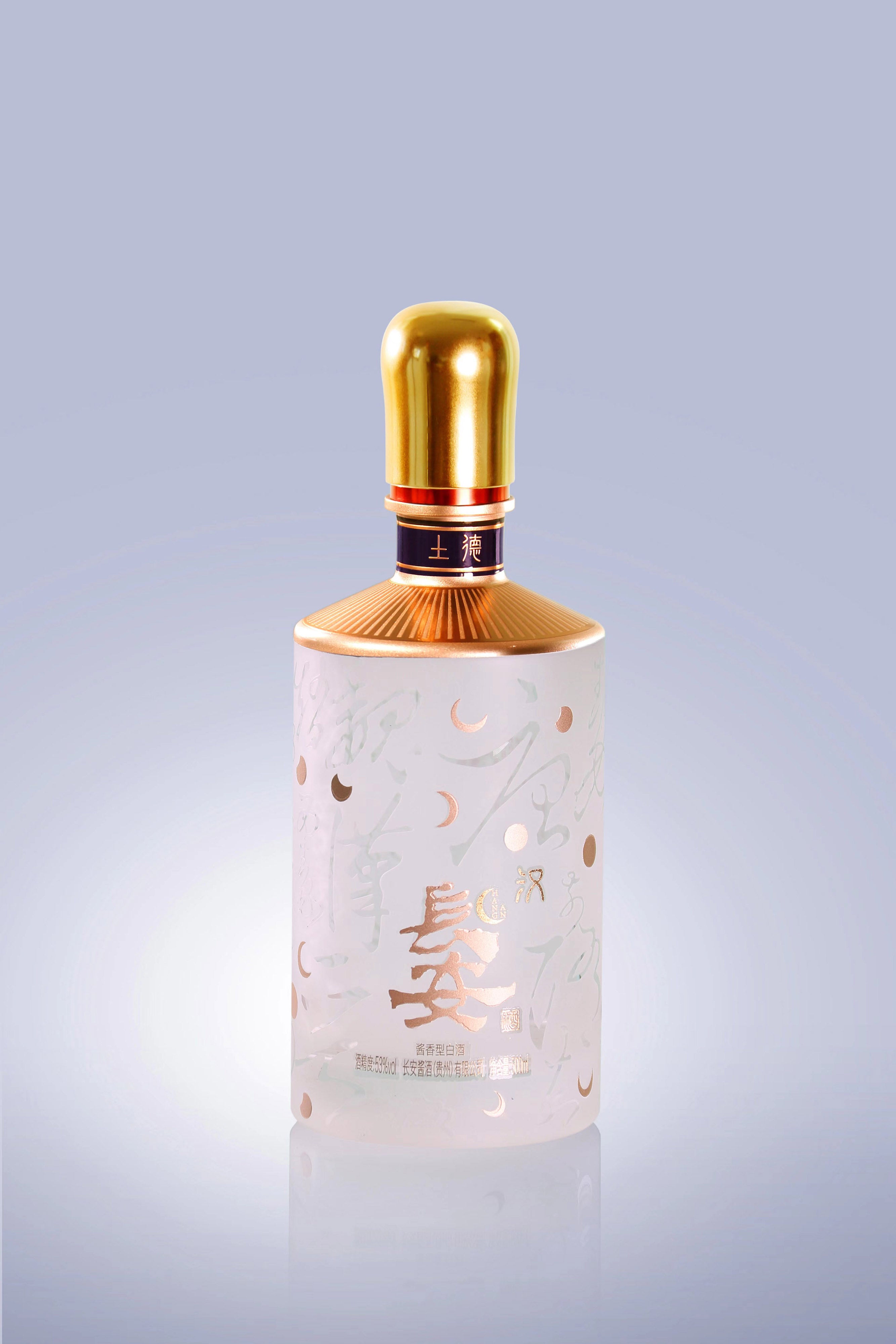
Pair text with an image to focus on your chosen product, collection, or blog post. Add details on availability, style, or even provide a review.
Chang'an Maotai-flavor liquor features four main products: "Han," "Zhou," "Tang," and "Qin." These four liquors not only represent different historical periods in Chinese history when Xi'an was the capital, but also perfectly combine the spirit of ancient civilization with modern brewing techniques, bringing consumers a unique taste experience. Among them, the "Zhou," "Tang," and "Qin" liquors are personally blended by Master Xu Qiang, a genuine inheritor of the Maotai-flavor liquor tradition, showcasing exquisite brewing and blending skills that embody the essence of Chinese liquor culture.
